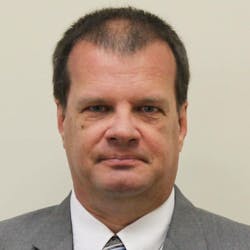Many challenges face today’s fire departments with concern to recruitment, retention and growth. Considering increased demands of firefighters with regards to time commitment and training, it is becoming more difficult to find dedicated men and women who have the ability to fully commit the desired time to ensure success of the department. These and many other areas of concern cause the department leadership to struggle to find solutions for solving today’s issues. John C. Maxwell’s “The 17 Indisputable Laws of Teamwork” can help a department achieve team success in regards to recruitment, retention, program development and morale.
To apply the “17 Laws” to the fire service, we must first understand that the success of the team is foremost the responsibility of the leadership and, more specifically, the chief. While each of these laws do apply to the entire department, the application of the laws must start at the top.
The Lone Ranger approach
Maxwell’s Law of Significance states, “Nothing of significance was ever achieved by an individual acting alone.”1 Maxwell challenges readers to think about the many great accomplishments of history. We are unable to find a single event where only one individual accomplished something great alone. Having said this, some people consistently attempt to accomplish goals by themselves without the assistance of others. They will undoubtedly not be successful. So why do some people insist on trying to be the hero?
Do you know a chief who operates his department in a way of dictatorial leadership? Does he want things his way or no way? Is he resistant to change? Is his department growing not just in numbers but in quality? Why does he continue to keep tight reigns on things?
Maxwell poses four reasons people like to work alone:
- Ego: Many people are not fond of admitting they can not achieve greatness on their own.
- Insecurity: Some leaders can be threatened by other people, especially people on their team who seem to be developing leadership skills. Maxwell states that insecure leaders fail to build teams because, “Either they want to maintain control over everything for which they are responsible, or they fear being replaced by someone more capable.”2
- Naivety: Some leaders are naïve and underestimate difficulties associated with big projects so they attempt things alone. They miss the benefits and experiences that other team members bring to the table.
- Temperament: Some leaders are just not outgoing and never consider engaging fellow leaders or team members to assist.
Is this chief developing people to take on leadership roles in the future? Is he listening to team members’ ideas and allowing them to take part in the development of the team? If team members feel insignificant, they may not be willing to provide the time and sacrifice to grow the team and accomplish goals. This will lead to problems with retention and may carry over into recruiting new members. People want to be a part of a team where they are needed, their talents and ideas are welcomed, and they can share in the success.
The big picture
Growing departments should have goals. These goals are included in Maxwell’s second law, The Law of the Big Picture. According to Maxwell, these goals should be shared with the team. They must include mutual goals that motivate the team to work together toward the common end. Maxwell states “The goal is more important than the role.”3
If the goal is self-serving toward one person or a group of people, the general population of the team will not buy in to the accomplishment of the goal. Personal agendas must be set aside. As leaders in the fire service, we must always make the unpleasant and unpopular decisions. However, those decisions should be what is best for the department and not an attempt to promote personal agendas. If the team understands the goal, and is excited about their participation in its achievement, personal sacrifices will be made throughout the department. Hence, “the goal is more important than the role.” But beware. Maxwell says, “Unfortunately, some people prefer to cling to agendas and pursue the paths of their own inflated egos instead of letting go of them to achieve something greater than themselves.”4
Communication is key
Probably the most important of Maxwell’s 17 Laws is number 13, The Law of Communication. Successful departments have very open and effective means of communication. Members are constantly talking about past events or future goals. This, among many things, creates an environment of learning, a sense of equality and pride. Communication is a part of everyday life within the department through day-to-day operations. Maxwell offers three points for effective communication. First, members should be consistent. Team members become frustrated when leaders are indecisive. Communication should be clear. Commands cannot be carried out when the team does not understand them. And finally, members should be courteous. Even the newest of team members deserves respect. The Law of Communication can be related to The Law of Significance.
Remember, The Law of Significance states “nothing of significance was ever achieved by an individual acting alone.” The Law of Communication suggests communication lines should be direct and honest. Team members should be able to express their opinions whether they are positive or negative as long as they are expressed in a respectful manner. Leaders should be willing to listen to all sides of the issue, keeping in mind they have the burden of decision. Team members should realize their ideas are welcome, but also accept that the burden of decision does belong to the leadership. If the leader effectively communicates the genuine interest in a member’s ideas, team members will respect the leader’s decision in the end. Maxwell states, “Leading a team is not easy. It takes hard work. It demands personal sacrifice. It requires making tough and sometimes unpopular decisions. We should respect the person who has agreed to take on that role and show him loyalty.”5 Of course, this respect is earned and not automatic. The end result of open and honest communication is that while all ideas are welcomed in the process, once the decision has been made, the team must be united. This way the team remains strong.
Effective leaders have effective teams. With dedication from each person involved, from leadership to team members, fire departments can effectively reach goals and continue to improve and grow. Each of us should strive to continuously set goals that will allow our department to improve. These goals could be increased membership, a decrease in structure fires, or purchasing new equipment. As a goal is reached, set a new one. As your department grows you will find that each goal you set is higher and perhaps a little more difficult to obtain than the last. Continuing to operate without goals will lead to stagnation and problems with retention and recruitment. In our area of Mississippi, the majority of departments are a Mississippi Rating Bureau Class 7. I read an article where one chief said that the goal of every department should be to reach a Class 7. That statement upset me. What happens when a department reaches a Class 7? Do they relax? Are they done improving?
In sum
The key to effective departments begins at the top with effective leadership. Do not lose sight of the days when you were in the subordinate role. Remember how you felt when you thought your opinion did not matter? Do not do things the same way because that is the way it has always been done.
Remember, everyone is significant. No one of us can succeed in this business alone. Don’t forget about the big picture and communicate that picture effectively to all team members involved.
Excerpts taken from:
Maxwell, John C., The 17 Indisputable Laws of Teamwork, Nashville: Thomas Nelson Publishers, 2001.
About the Author

Kyle Hill
Chief
Kyle Hill currently serves as chief of Northeast Lamar Fire, Rescue & EMS (combination department) in Hattiesburg, MS. He has served as southeast vice president of the Mississippi Fire Chief’s Association and secretary of the Forrest/Lamar County Fire Chief’s Council. In 2005, Hill was named Firefighter of the Year for Lamar County for his contributions during Hurricane Katrina. Hill holds a PhD in education from The University of Southern Mississippi and is currently retired from his position of 27 years as director of bands and department chair at Pearl River Community College.
